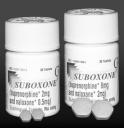 Commentary by Judith Brenner MD, Associate Editor, Clinical Correlations
Commentary by Judith Brenner MD, Associate Editor, Clinical Correlations
In a week dominated by the politics of first, the Democratic National Convention, and later, Senator McCain’s selection of Sarah Palin as the VP …

 Commentary by Judith Brenner MD, Associate Editor, Clinical Correlations
Commentary by Judith Brenner MD, Associate Editor, Clinical Correlations
In a week dominated by the politics of first, the Democratic National Convention, and later, Senator McCain’s selection of Sarah Palin as the VP …
 Commentary by Bani Chander MD, PGY-3. and Ben Bergman MD, PGY-3
Commentary by Bani Chander MD, PGY-3. and Ben Bergman MD, PGY-3
Please also see last week’s Class Act Post on the pathogenesis of Rheumatic Heart DiseaseÂ
A 34-year-old Hispanic male presents with the chief complaint …
 Class act is a feature of Clinical Correlations written by NYU 3rd and 4th year medical students. Prior to publication, each commentary is thoroughly reviewed for content by a faculty member.
Class act is a feature of Clinical Correlations written by NYU 3rd and 4th year medical students. Prior to publication, each commentary is thoroughly reviewed for content by a faculty member.
Commentary by Daniel …
 Commentary by Joshua Lee MD, Ellie Grossman MD and Marc Gourevitch MD, NYU Division of General Internal Medicine
Commentary by Joshua Lee MD, Ellie Grossman MD and Marc Gourevitch MD, NYU Division of General Internal Medicine
Substance abuse remains a leading cause of disease and mortality in the US, yet it is …
 Commentary by Josh Remick MD, NYU Senior Chief Resident
Commentary by Josh Remick MD, NYU Senior Chief Resident
Well, it’s been quite a week! First there was Obama’s VP buzz putting the world in a frenzy, which finally culminated with his …
Case presentation by Kristin Remus DO, NYU Chief ResidentÂ
Please review the posting of our prior CPC here.
When you’re ready you can download the CPC Answer.
Commentary by David Sutin MD, NYU Section 0f Geriatric Medicine
The Annual American Geriatric Society meeting, held May 2008, in Washington DC, was as usual fascinating. The meeting highlights included a lively discussion of the treatment of hypertension in the very elderly, and a talk on the emerging syndrome of …
 Commentary by Antonella Surbone MD PhD FACP, Department of Medicine, New York University Medical School, Clinical Correlations Ethics Section Editor
Commentary by Antonella Surbone MD PhD FACP, Department of Medicine, New York University Medical School, Clinical Correlations Ethics Section Editor
According to the Institute of Medicine (IOM) report of April 14th, 2008, …